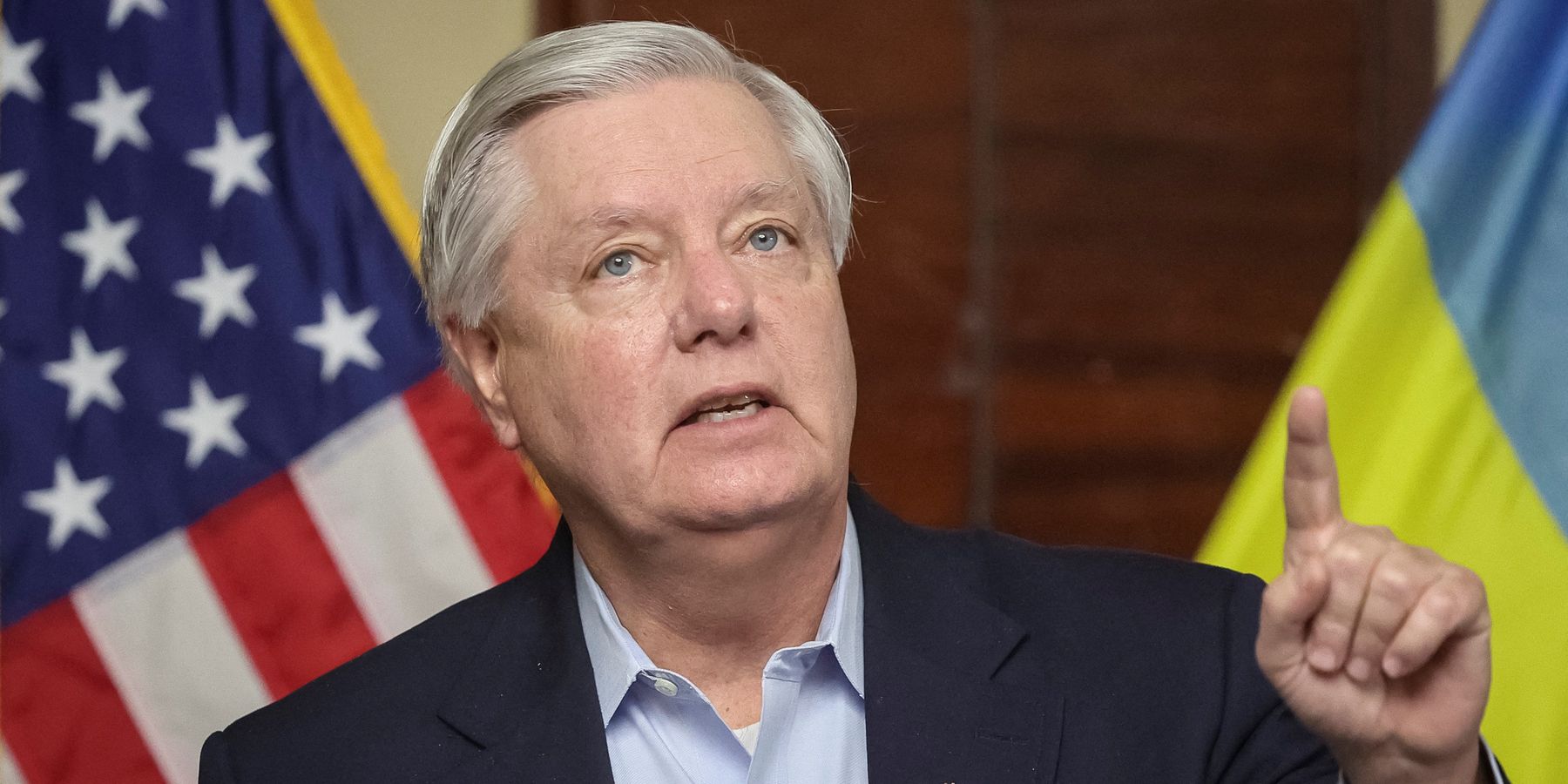Sen. Lindsey Graham’s long awaited Russia sanctions bill advances — now with President Trump’s support.
The legislation, which has over 80 co-sponsors in the Senate, would impose punishing sanctions on myriad Russian officials and sectors, while enacting 500% secondary tariffs on countries doing business with Moscow, like India and China.
The legislation had stalled for months in light of repeated White House concerns that the package might upset diplomatic efforts toward a negotiated political solution to the war in Ukraine.
But now, Graham says Trump has given the green light. “We’re moving,” said Sen. Lindsey Graham (R-S.C.), the author of the bill. Graham said Trump “told me it’s time to move so we’re going to move.”
Prospects for the legislation bubble amid diplomatic malaise, where Trump, increasingly fed up by the lack of diplomatic progress regarding the Ukraine war, even reversed a decision made by the Pentagon last week to halt Ukraine aid.
“We get a lot of bullshit thrown at us by Putin, if you want to know the truth,” Trump told reporters during his cabinet meeting yesterday. “He’s very nice to us all the time, but it turns out to be meaningless.”
At the cabinet meeting, Trump himself concurred that he was “very strongly” considering the sanctions proposal lobbied by Graham. “It’s totally at my option. They pass it totally at my option, and to terminate totally at my option. And I’m looking at it very strongly,” he said.
Trump’s words have been music to Graham’s ears.
“President @realDonaldTrump is spot on about the games Putin is playing,” Graham wrote on X Tuesday. “The Senate will move soon on a tough sanctions bill – not only against Russia – but also against countries like China and India that buy Russian energy products that finance Putin’s war machine. The Senate bill has a presidential waiver to give President Trump maximum leverage.”
Senate Majority Leader John Thune (R-S.D.) also signaled yesterday there would be an announcement on the legislation soon. “We’ll have more to say about that later this week,” he told reporters, saying there’s significant “interest” in moving the bill forward.
Thune stressed the importance of coordinating the bill’s consideration with the White House to PunchBowl News.
“We want to make sure, when we move it, that we’re coordinating it with the WH, with the House… I’m hoping that we’ll get the other entities in a place where there’s an opportunity for us to get this done,” he said.
Andrew Desiderio reported in PunchBowl News that the week of July 21st was likely the first week the bill could be considered on the Senate floor.
- Imposing 500% tariffs on nations that trade with Russia will backfire ›
- Diplomacy Watch: Lindsey Graham pushing new sanctions on Russia ›
- Diplomacy Watch: Trump changes tune, music to Zelensky’s ears | Responsible Statecraft ›
- Russia sanctions & new weapons, is Trump stuck in Groundhog Day? | Responsible Statecraft ›
















